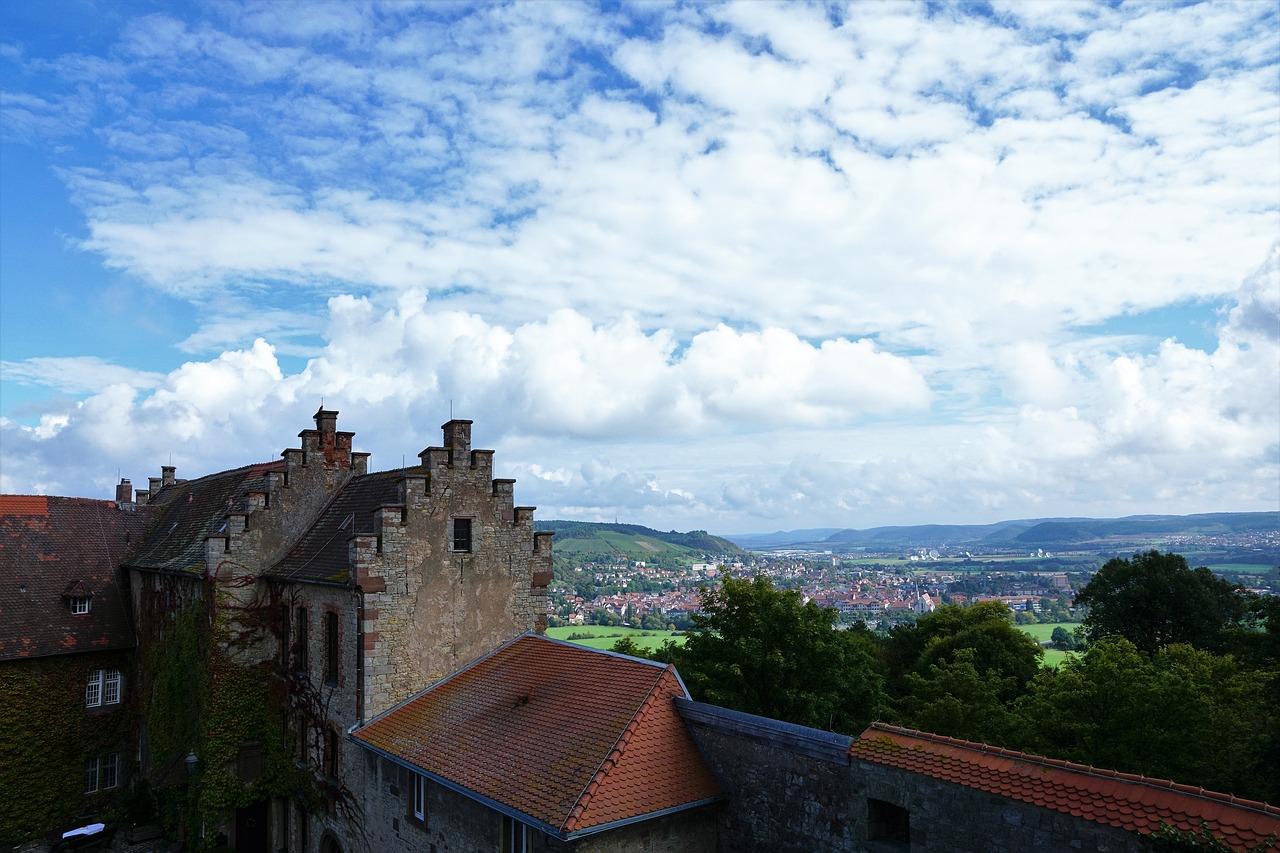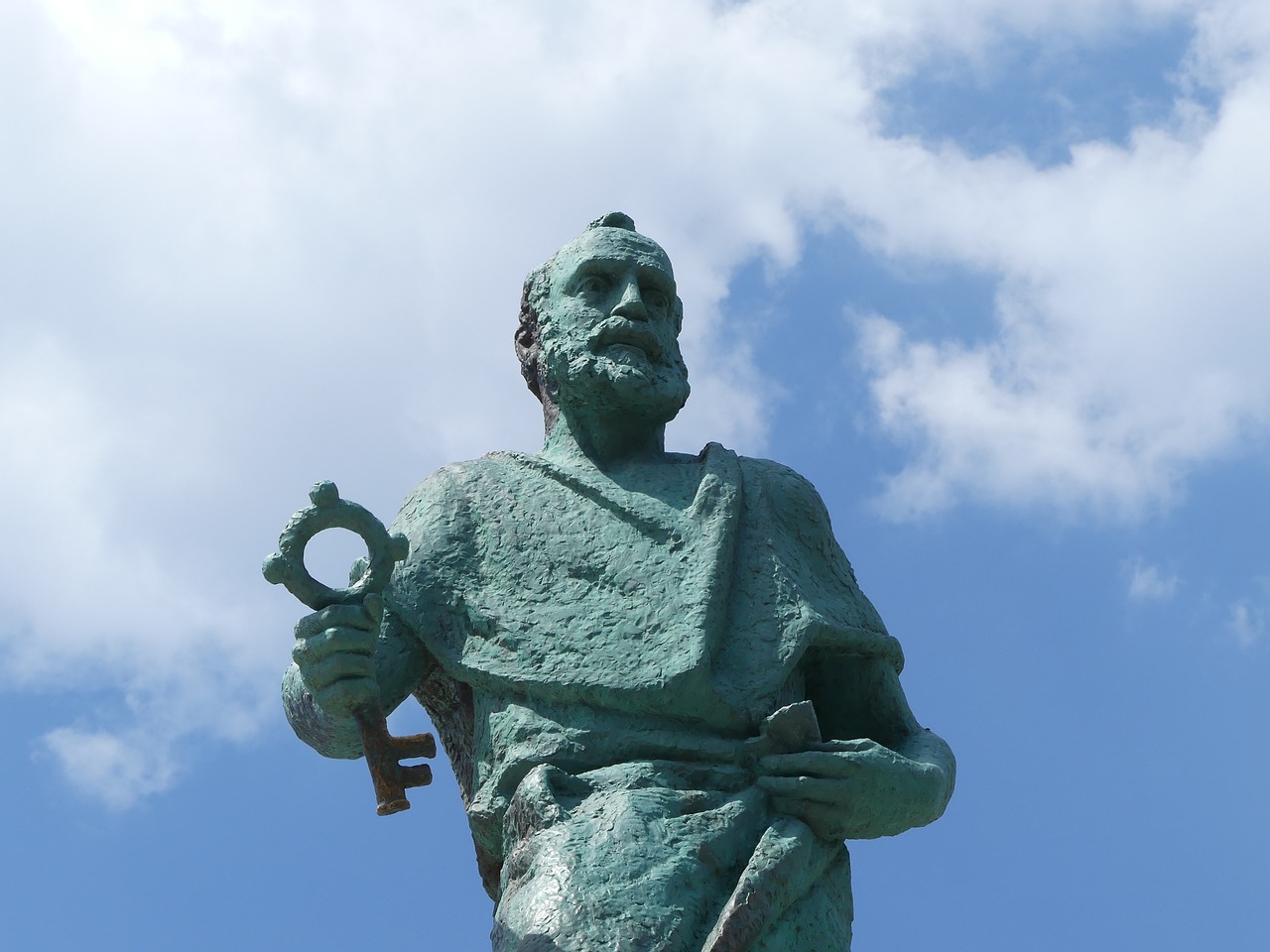You’ve heard something about this Jesus and that the Bible is somehow relevant, but at some point you ask yourself the question, “What’s the difference between Catholic and Protestant?” I have tried to answer this as neutrally as possible.
The difference between Catholic and Protestant is basically: the Catholics also include tradition in the possibility that God reveals things to you;- while Protestant-believers recognize only the Bible alone (and all alone) as the only possible source of God’s will.
Table of Contents
Catholic vs Protestant: Essential Historical Background Information
Every German living in the north of Germany might have come across the name Martin Luther. He published a bunch of theses in the 16th century, which were supposed to split the only existing church in Europe at that time.
The only existing church in Europe at that time was the Roman Catholic Church. This dominated the faith and thus the whole way of life of the people. The problem: According to Luther, the church invented many things that were absolutely not in God’s sense.
Because Luther translated the Bible, many people first understood that he had probably been right and started wars.
Why did Luther think that the Catholics were no longer behaving in God’s way?
We leave the exact interpretation and derivation of his teaching to the professional theologians for once. For the question “What is the difference between Catholic and Protestant?” only one thing is important for us: The Catholics draw their understanding from being the only true church.
The Catholic Self-Image
The Catholic Church claims to be the only true church – what does that mean again? It means that only in it can one find salvation. It is the guardian of God’s word. Her deputies represent not only an organization, but God personally.
So the pope is not just some administrator – no: for his understanding he is the representative of God on earth. There is no biblical evidence for this assumption, but at most hints and stories. In this case Peter is supposed to have been the first pope, who again rum “inherits” his power until today.
The same applies, for example, to the veneration of Mary: in the Bible, the (earthly) mother of Jesus Christ is mentioned rather briefly and, apart from the fact of the birth, no longer plays a major role. In the tradition of the Catholic Church, however, Mary was highly stylized.
There are many such elements, which also remain in the Catholic doctrine and belong to the fixed canon of divine revelations.
The Protestant Self-Image
Now a Catholic might certainly interject: But even in the Catholic Church there are things that are preserved from tradition! I say: True. But these have not a complementary, but a reminding background.
Because: With the Protestant believers the principle “Sola Scriptura” applies, i.e. “only the word”. Only the Word of God (i.e. the Bible) is the only assured source of God’s will. Since the completion of the Bible, God has not brought forth anything new, and nothing can or may be added.
Developments via tradition are therefore not necessarily God’s will and can lead believers astray. It is better to stick purely to the Bible and there are no other sources of God’s will.
This may sound less and boring to a Catholic – but the bottom line is that it is about the truth and remaining in eternity.
Difference between Catholic and Protestant conception of man
Besides the tradition, there are also strong differences in the teachings of the two denominations. As a layman, you certainly do not immediately think: Sure, there is a Jesus who is risen. Both denominations have the Trinity in their teachings. And somehow both are about God… or not?
As I said: For a layman (and actually I consider myself to be one) the question should drift apart heavily. But I try to fumble it out according to my understanding: The Catholic Church assumes a basically good person who messes up from time to time, while the Protestant doctrine assumes an evil person who, with God’s help, does good things from time to time.
The theological background of this may be well beyond the scope of answering the question “What is the difference between Catholic and Protestant?” and should only really be of interest to (aspiring) theologians. In essence, it has to do with how the sin of Adam and Eve was passed down from generation to generation.
In turn, other doctrines are derived from this view of man, such as the principle of “by grace alone.” Man can basically do nothing on his own, because God must give him everything (through the “contamination” of sin). Catholics think differently at this point.
It is important to understand: Already in the most important question about man there is a fundamental difference between the two faiths.
Other differences between Catholic and Protestant
In my opinion, the most important difference between Catholics and Protestants (aka Evangelical believers) has already been described: In the understanding of the Bible and the understanding of the image of man. Many other doctrines that like to be listed in such comparisons go back to these two basic pillars. Nevertheless, I have taken the liberty of noting a few more differences here:
In the Catholic Church, one is freed from sins through confession. In the Protestant Church, faith in salvation through Jesus Christ is enough.
In the Catholic Church only men are allowed to become priests and teach (as of December 2021).
Devotion to Mary is part of the Catholic Church.
At the Lord’s Supper, Catholics literally eat the body of Christ, while for Protestants it has more of a symbolic meaning.
Summary: What is the difference between Catholic and Protestant?
Jesus: Same. Trinity: same. Somehow calling themselves Christians: Same. Being the same at first glance: For unbelievers. For all other believers a truly large gap of the two faiths arises, which already shows too large differences in the core. Here the pitfall is in the details.
I hope I could help you with the question: “What is the difference between Catholic and Protestant”?


